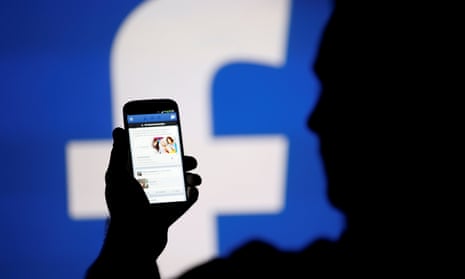The Observer’s discovery that a secretive firm apparently bankrolled by a rightwing billionaire was at work in the Brexit referendum to sway voters selected on the basis of their Facebook profiles highlights the way in which the erosion of privacy can lead to an erosion of democracy – and will inevitably do so without firm, clear, principled action by governments and courts.
The same firm, Cambridge Analytica, has also been credited with helping the Trump campaign in a similar way, although this is disputed by some observers. Even if we can’t know how effective such campaigns have been, they will spread so long as any political organisation suspects that its opponents might gain an advantage from them.
Willie Sutton, the American bank robber, explained that he robbed banks “because that’s where the money is”, and political campaigns are certainly going to use Facebook because that’s where the voters are. Unlike other social media, where you tweet to the converted, Facebook is well adapted to changing people’s minds: that is the basis of its stupendous valuation as an advertising channel. We have seen this with the phenomenon of “fake news”, but that is more or less public. Micro-targeted ad campaigns are by their nature private or narrowcast. They never reach outside their target audience. Thus they can contain falsehoods or insinuations that are never challenged because they are never brought to light.
Our model of democracy is based on public campaigning followed by private voting. These developments threaten to turn this upside down, so that voting intentions are pretty much publicly known but the arguments that influence them are made in secret, concealed from the wider world where they might be contested.
There are two kinds of privacy under threat in the emerging economy, where everyone is almost always connected to the internet, and has their lives enmeshed in big data. The first privacy is the kind that we intuitively understand even if it is difficult to define objectively because, like modesty and shame, it is dependent on culture and context. Some Europeans are happy with nudity on public beaches but would be horrified to have their salaries discussed; most Americans react the other way round. But in both cases, they keep private what might make them socially vulnerable if it were publicly known. At one extreme there is the possibility of blackmail; at the other, perhaps, merely embarrassment, but even that can be an excruciating emotion, especially for teenagers. People have killed themselves because their intimate photographs have been shared for the mocking enjoyment of strangers.
Technology has made it much easier to violate that kind of privacy. Some things are now known to advertisers almost before you know them yourself. The classic case is the woman whose online activity shows that she’s trying to conceive. If she succeeds it will be almost impossible to conceal her pregnancy from the market. The advertisers will know long before she chooses to tell her friends. But there is a second, more frightening loss of privacy as well. The unprecedented knowledge that the giants of the surveillance economy have acquired about us may disclose vulnerabilities of which we are ourselves unaware.
This is similar to the ways in which demagogues, unscrupulous lawyers, and advertising agencies have always manipulated their victims by playing on their prejudices, but the promise of big data is that this will become easier and more effective than ever before. What we tell our smartphones about our lives, intentionally or otherwise, is far more than the most ambitious secret policeman of the last century could hope to discover by covert surveillance. The ability to exploit the vulnerabilities that this data reveals should be controlled just as tightly as we try to control our security services. Democracy demands no less.








